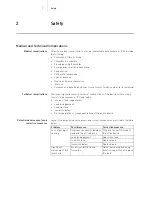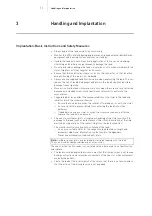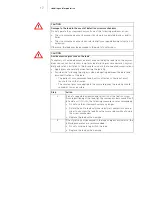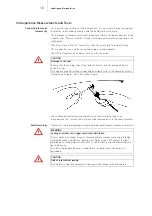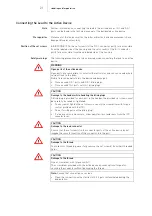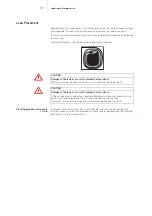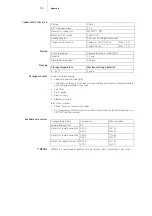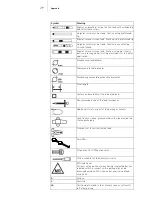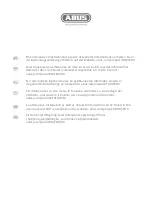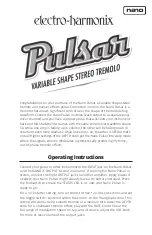
14
Handling and Implantation
Checking the Function of the Fixation Screw before Implantation
Function
Use the enclosed fixation tool to extend the fixation screw (turn right, clockwise) and
retract it (turn left, counterclockwise).
When fully extended, the fixation screw protrudes a maximum of 1.8 mm from the
lead body.
Number of rotations
The maximum number of rotations permissible for the complete extension of the
fixation screw and the maximum number of rotations required to do so are listed in
the "Technical Data" section of this technical manual.
The exact number of rotations required depends on several factors:
•
Lead length
•
Precise position and curves of the lead
•
Residual torque in either direction resulting from previous rotational
movements
•
Increased static friction with first use of the screw mechanism after long
storage
!
!
CAUTION
Damage to the lead caused by turning the screw mechanism too far
Do not exceed the maximum number of rotations to extend or retract the fixation
screw as specified in "Technical Data".
!
!
CAUTION
Damage to the lead when using the screw mechanism
Please take the following precautions into account to prevent damage to the lead:
!
!
CAUTION
Leads with a defective screw mechanism are not suitable for implantation
Do not implant the lead if it fails the function test. Instead, use a replacement lead
that has passed the same test.
Step Action
1
Remove the stylet guide from the lead connector.
It will remain on the part of the stylet that is protruding from the lead. The
stylet remains entirely in the lead.
2
Clamp the enclosed fixation tool on to the connector pin of the lead
connector.
Alternative: Clamp the connector's contact pin into the groove of the fixation
tool.
3
Turn the fixation tool in a clockwise direction until the fixation screw is fully
extended.
4
Turn the fixation tool in a counterclockwise direction until the fixation screw
is fully retracted.
5
Remove the fixation tool from the connector pin and place the stylet guide
back on the lead connector.
6
Do not implant the lead if it fails the function test. Instead, use a replace-
ment lead that has passed the same test.
Checking the screw
mechanism before
implantation
Before starting the implantation process, test proper functionality of the screw
mechanism by fully extending and retracting the fixation screw.
•
Only use the lead with a stylet inserted, even if you only want to check the screw
mechanism.
•
The stylet must not be kinked or overbent.
•
Only use the provided fixation tool clamped to the connector's contact pin to
extend or retract the fixation screw. Do not use any other tools or accessories.







